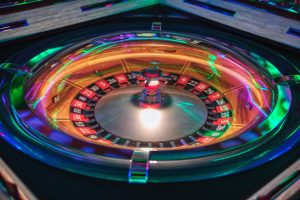
Betting Psychology – Understanding the Gambler’s Mind
Betting psychology is an intricate field encompassing both chance and skill. Although betting can bring excitement and high stakes gambling can produce, assessing risk requires proper evaluation as it helps determine what drives people to gamble or bet in the first place. Understanding these motivations is important in understanding why so many engage in gambling activities.
Pathological gamblers become preoccupied with gambling and tend to revisit past betting experiences, which can activate neurotransmitter systems associated with addiction.
Affect heuristics
Gambling can be an instinctive activity for some people and it’s easy to make quick decisions without giving much thought or consideration to what could be long-term losses. Bookies rely heavily on gamblers making quick decisions without much research or thought being put into them – this works in their favour! Those who take time and thought when placing bets tend to experience less long-term loss.
One of the most frequent forms of bias is availability heuristic. In this situation, people often place more weight on information they find readily accessible such as recent winning streaks of teams; this can influence betting decisions and lead to bad choices.
Humans have evolved to avoid loss, which makes perfect sense considering losses can be more painful than gains. Unfortunately, this tendency can skew our betting decisions by prompting us to remain in losing positions despite their reduced chances of success and can even cause overinvesting in certain bets – leading to large losses and potential gambling addiction.
There are ways to counteract these biases and improve your betting, however. One is avoiding betting on teams based on recent wins or losses; another way is to explore where your judgment on certain bets stems from; for instance if you find yourself about to place an over/under bet ask yourself why it seems likely rather than unlikely?
Memory bias
Memory bias is an influential cognitive factor that can sway gambling behavior. This phenomenon involves remembering past wins fondly while downplaying losses; this causes risk assessments to become incorrect and thus increase bet sizes. Emotional valence of past outcomes influences memory recall while selective attention and cognitive heuristics such as availability and representativeness can exacerbate memory bias leading to more impulsive gambling behavior.
Memory bias can be reduced using various tests designed to identify problem gamblers. Researchers have developed the Iowa Gambling Task which uses a computer program to present players with red and blue boxes that measure how they respond and whether or not they make bets on each color, along with past responses. Research shows that those with higher levels of self-control exhibit less cognitive bias compared with those who lack this control – supporting the hypothesis that self-control regulates both cognitive bias and trait impulsivity.
Memory bias can be diminished by placing more focus on the odds of winning than on prize size; this approach helps eliminate excessive confidence in future bets while improving your betting experience overall.
Tolerance to loss
Bettor tolerance to loss is an integral component of betting psychology, serving as a cognitive bias which leads them to make riskier wagers when they’re losing. Although this phenomenon is experienced by many gamblers, overcoming it without proper training can be challenging; one way of breaking this habit would be avoiding gambling when feeling down or stressed out.
One factor contributing to people’s tolerance of betting is how their moods are highly impacted by their environments, leading them to make biased bets based on emotions rather than research. It also leads to affect heuristic, where people bet based on feelings or allegiance toward particular teams – this makes it hard for bettors to remain objective when placing bets.
Gamblers may develop tolerance due to becoming used to the high dopamine rush they get when winning, leading them to neglect the long-term consequences of their actions. This effect may explain why compulsive gamblers resemble drug addicts in this regard; studies have also discovered that pathological gamblers’ brains show less activity in areas related to reward seeking behavior and impulsivity such as ventral striatum areas involved in reward seeking behavior and impulsivity.
Motivation
Researchers have identified various motivational factors that impact bettor behavior. Some individuals make their bets due to emotions such as competition or an urge to win; others might be motivated by thrill of winning or potential financial gains; however, all these motivations may lead to problematic gambling behavior and PCM-TSB attempts to provide a comprehensive psychological framework that addresses how such factors influence gambling behavior.
Escape and coping motives may be primary motivations behind gambling, but other motivations also play a pivotal role. For example, some gamblers are intrinsically driven to place bets because they enjoy watching sports or predicting outcomes, or may experience feelings of personal accomplishment when placing bets.
Research indicates that the striatum of the brain responds to monetary rewards, confirming that humans share similar reward systems to animals and plants. It may also be possible that emotional arousal leads to risk-taking behavior and long-shot bets being pursued through emotional responses in the orbitofrontal region of the brain.
Gainsbury and colleagues conducted an innovative study that demonstrated participants’ increasing motivation for change as they empathized with significant close and distant others’ feelings, an approach reminiscent of Motivational Interviewing known to reduce resistance to change among problem gamblers.


